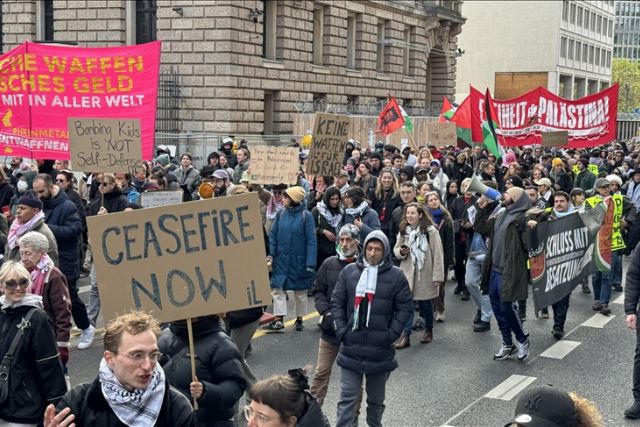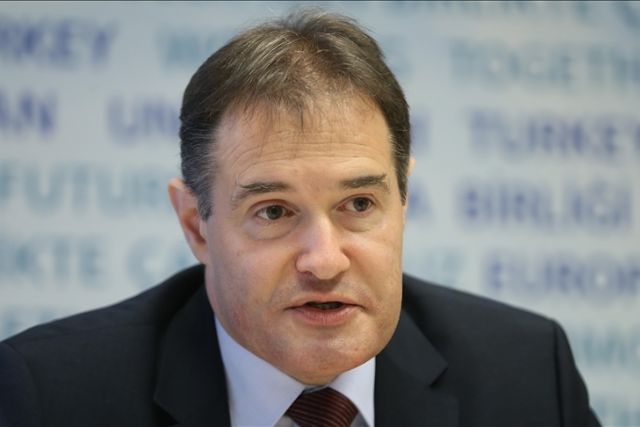Leaders of post-Soviet countries hold informal meeting in St. Petersburg
Putin marks 70th birthday in company of leaders of Commonwealth of Independent States

MOSCOW
The leaders of member countries in the Commonwealth of Independent States (CIS) held an informal meeting in St. Petersburg on Friday.
Russian President Vladimir Putin, whose 70th birthday coincided with the meeting, said at the meeting that economic cooperation between CIS countries was expanding.
Last year, trade turnover between them increased by 30% to a reading of $96 billion, Putin said, underlining that such positive trends could facilitate the use of national currencies between members, boosting their financial sovereignty.
On security in CIS countries, he said that sometimes, member countries had conflicts with each other.
"In our circle, of course, we will also touch upon issues related to the problems of ensuring security in the Commonwealth space.
"After all, in addition to Ukraine, where truly tragic events are taking place, unfortunately, conflicts sometimes arise between other close states of the post-Soviet space, and this, of course, requires the development of measures to resolve them," said Putin.
He stressed the importance of exchanging information on drug trafficking, terrorism, extremism, organized crime, and corruption for law enforcement in the CIS.
Putin also thanked Kazakh President Kassym-Jomart Tokayev for his initiative to establish an organization for the support of the Russian language under CIS auspices, calling Russian "the language of communication" of countries in the organization.
He said CIS leaders were planning to speak about preparations for a summit on Russian and Central Asian history to take place next week in Astana.
The CIS is a regional intergovernmental organization in Eastern Europe and Asia, formed after the dissolution of the Soviet Union in 1991 at the initiative of Russia, Ukraine, and Belarus.
It encourages cooperation in economic, political, and military affairs and has certain powers relating to the coordination of trade, finance, lawmaking, and security. It also promotes cooperation on cross-border crime prevention.





